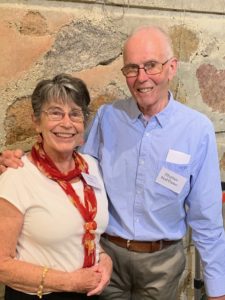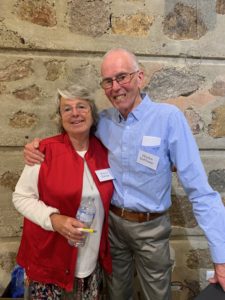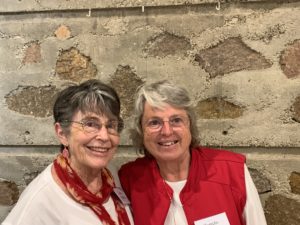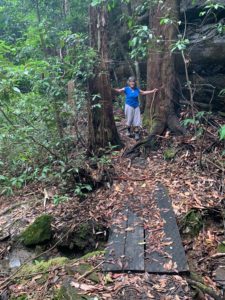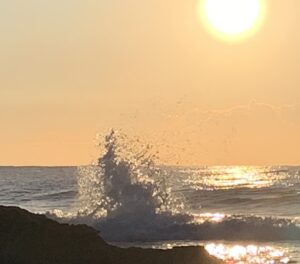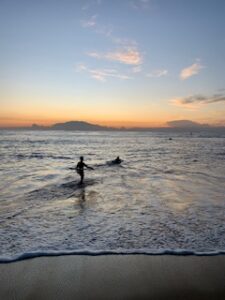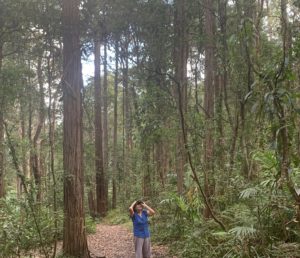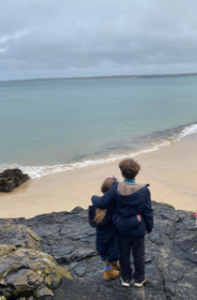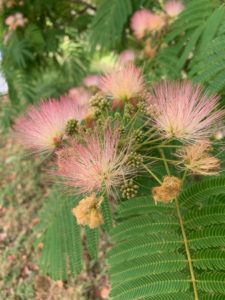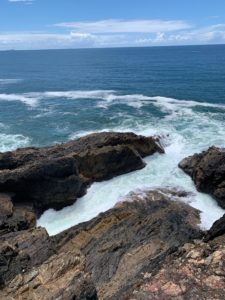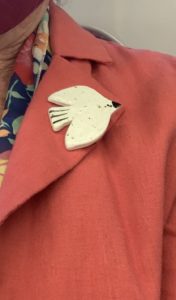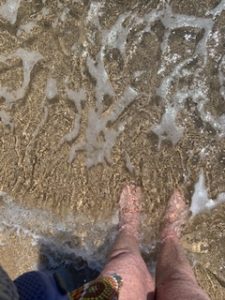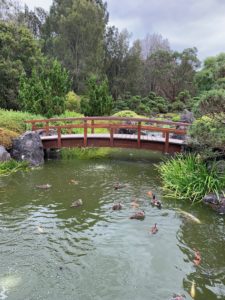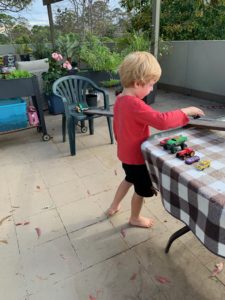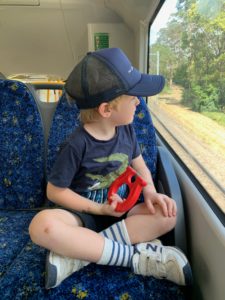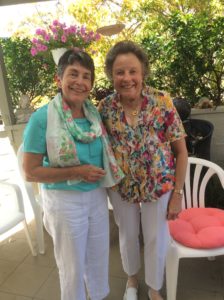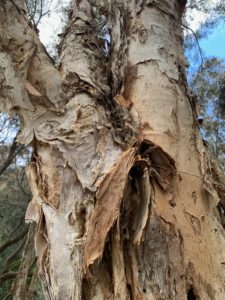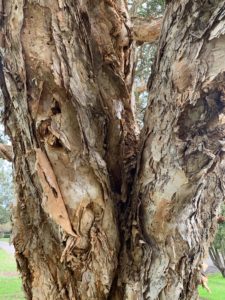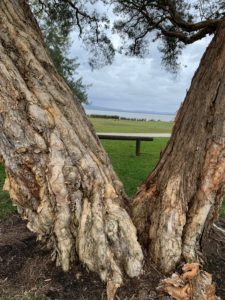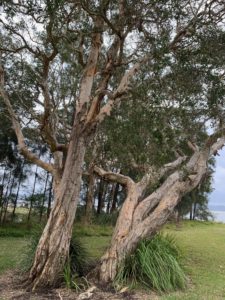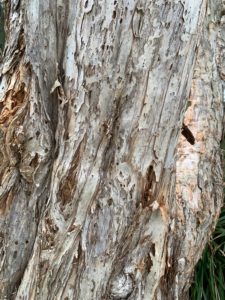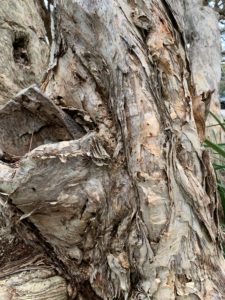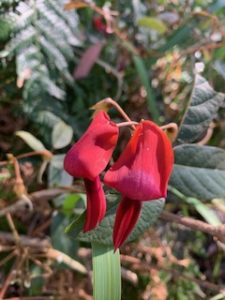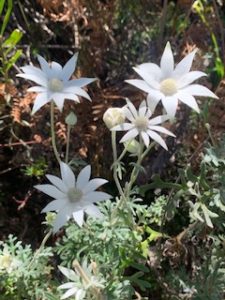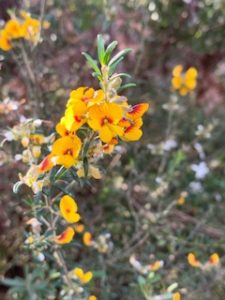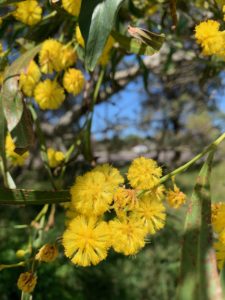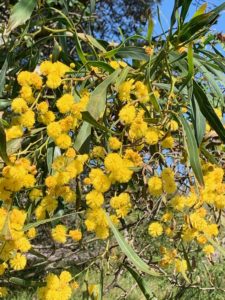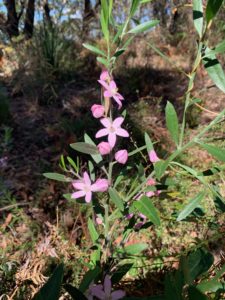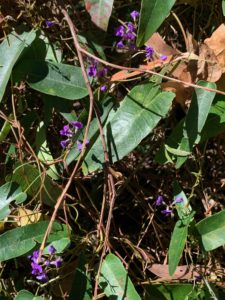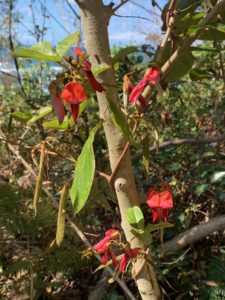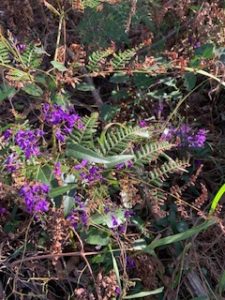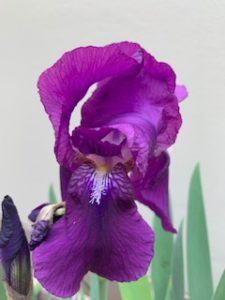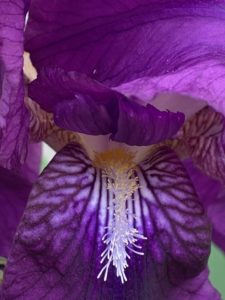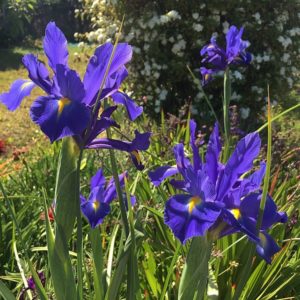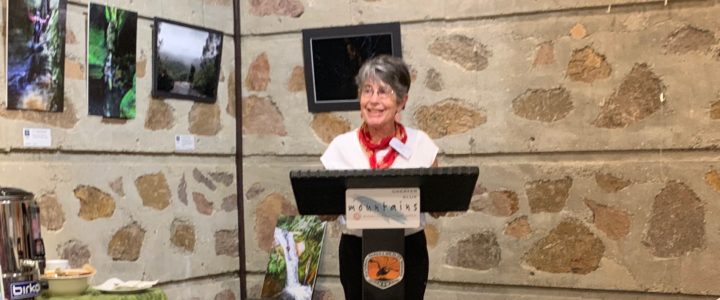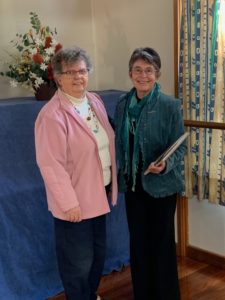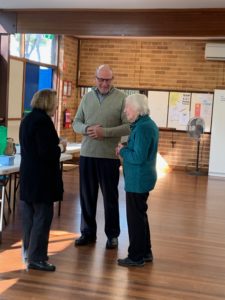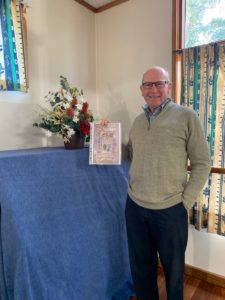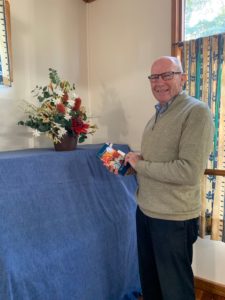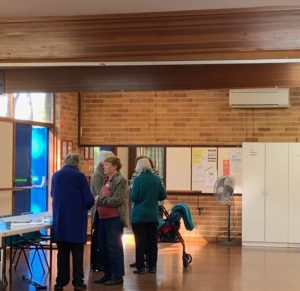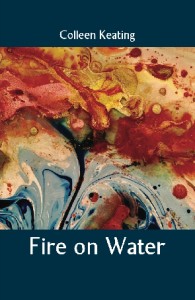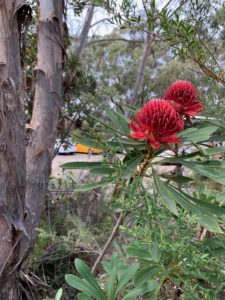
A Sense of Place How does where you write affect what you write?
Thank you Brenda for the introduction and please convey our thanks to Joan Fenney the editor of our new anthology Mountain Secrets. What a lot of work and how proud we all are.
And thank you, to you both Brenda and Stephen Matthews for your vision and dedication in not only bringing us together today but bringing us together as a family of writers published under the Ginninderra Press stamp. And for organising this forum for us as writers to grapple with a very important concept . . . A Sense of Place in our writing.
What an appropriate setting – we can feel fresh unwithered mountain air,
smell the eucalyptus oils and standing down at Govett’s Leap look at the Bridal veil falls , only a trickle for now because of the drought, hear the stunning silence of the Grose valley and its deep gorges. Just outside the shop door is a rambling track to the weeping sandstone cliffs where we can enjoy the Australian bush with banksia, hakeas, wattles and other acacias, myrtles, still a few waratahs if you are very observant. There are places to sit and listen to the birds backgrounded by the iconic crack of the whip bird.
What a Sense of Place this National Park gives us.
Exploring a sense of place in our writing makes us present to the moment . . . to the air we breathe . . .being in the breath. .the now. . . . like Walt Whitman once said “Every atom of me that is good belongs to you”
What interconnection with place and with each other we have and in this land.
It is really in some ways a sense of presence. When the poet is anchored in a place , in a presence. they are able to anchor the reader.
And it focuses the question how does where we write affect what we write . It seems to me as writers we need to turn up everyday. In a room, on a couch, at a desk, in a cafe ,on a walk – some routine of getting rhythm into our day. Where we write is vital to our writing. Virginia Wolfe says that having a room of our own helps us to be a writer. . . having some space in our heart is all we need. And when we are settled, our imagination can take us anywhere.
Emiliy Dickenson for us as poets is an example of someone who did most of her writing in one location. A young woman who rarely left her room. One who could write these words:
There is a pain – so utter
It swallows substance up
Then comes the Abyss with Trance
So Memory can step
Around – across – upon it –
We really can write anywhere
and we can write about anything, anytime, anywhere –
as long as we have pen and paper or device with us.
If I invited you to give me varied and unusual places where you have written, you would fill us with stories, with smiles, at some of the places where you have found inspiration.
So how does this affect our writing
The American novelist Wendall Berry says ,,
“If you don’t know where you are, you don’t know who you are.”
He is suggesting if you can’t give your reader that sense . . . they hang rootless
Places are more than just locations on a map. A sense of place has its human attachment. Linking a story to place not only grounds it, but makes it unique.
With my new book Hildegard of Bingen; A poetic journey, I wrote at my desk. I did go to Bingen three times immersing myself, taking time just being, walking in the Rhineland of Germany. I lived in the modern Benedictine Abbey for a few weeks. I walked in Hildeagrd’s footsteps. But back home turning up at my desk was how it got written. I played her music , lit a candle made by the Benedictine nuns
drank her wine and her teas. But it was at my desk it was written. .
To transport me back into mediaeval 12th century so i could transport my reader there with sounds and smells and tastes was done from intensive reading, research and writing from my imagination.
To ground and anchor our readers, we as writers need to be grounded.
It is walking that grounds me. Waking my beach with sandy toes and salty taste of air inspires me May be it is the rhythm or the tang of air or the empty space but that is my inspiration. Maybe it is the the ramble or the pattern of walking that takes me inwards where I find the inspiration.
How important is this grounding in place and how it affects what we write?
I read this statement that many of the worst abuses of land, forest, animal, human communities has been carried out by people who are caught up in IDEAS rather then rooted in place Rootless, detached people are dangerous yet when people understand where they are and have a sense of place there is more care, more connection with their surroundings, to establish knowledge of and appreciation of their earth. This, in turn, nurtures empathy for the place and a feeling of belonging, and leads to greater stewardship. It gives a sense of meaning.
Our Indigenous people give us the greatest prism for writing – where they are, affects them. Their routines in singing, story telling and dance . When they are deeply rooted there is a oneness. ‘Our Land is our Body’
When they are dissociated from their country they are lost.
Among the contemporary poets Mary Oliver has been one of the most articulate –showing us where she writes affects what she writes.
Her focus on interior subjects varies but we experience it more profoundly and more authentically when it is rooted in a specific TIME and PLACE.
In her poem Mornings at Blackwater – the pond that she walked to each day with pen and pad, she writes,
So come to the pond,
or the river of your imagination,
or the harbour of your longing
and put your lips to the world.
And live
your life.
How does where I write affect what I write?
As an Australian I cannot go far past who I am.
I have found my childhood identity always brings its own dimension to enrich my writing .
As Faulker says
“The past is never dead . It is not even past .”
And yet my new book is about a woman living in Germany in the mediaeval 12th century so I wondered and then I realised I could only write that from who I am here and now . Where I write and who I am informs what I write.
It anchors me into a sense of place and affects my thoughts, ideas, values , attitudes and hence affects what I write.
So finally it seems to me even if I write of a German mystic or “of sandy toes curling in wet sand gazing at a stormy seas “
my writing is informed by a sense of place.
We are learning from Indigenous Australians, from each other and also from the poets, from songsters, nature mystics , bush walkers, bird watchers. We must continue to learn to write from those for whom the land and its sense of place is a source of wonder.
